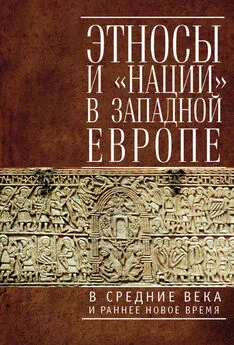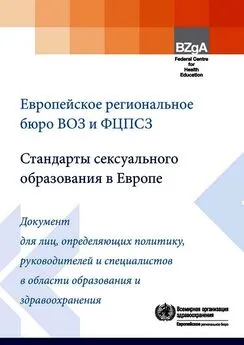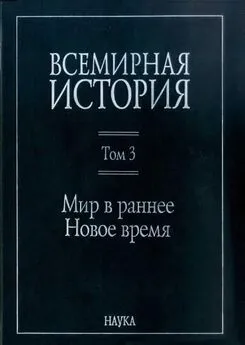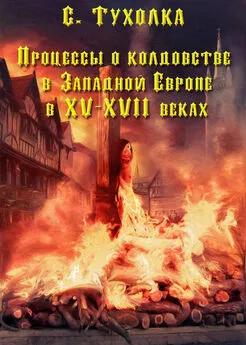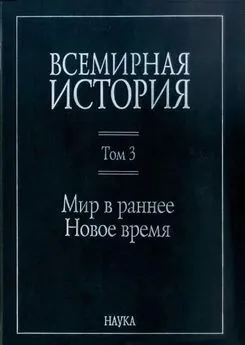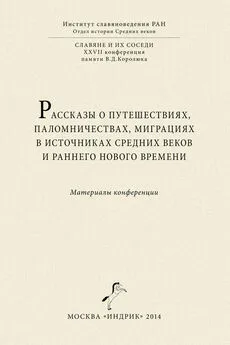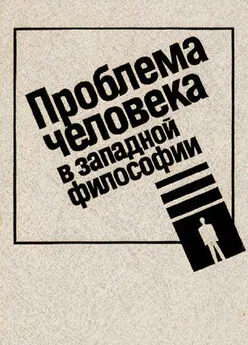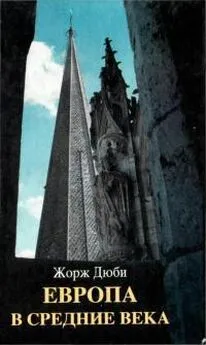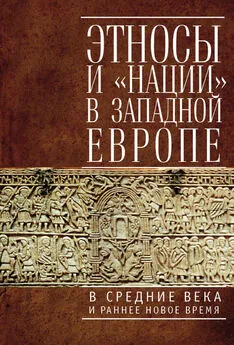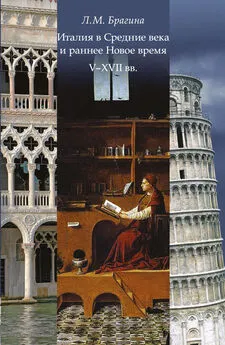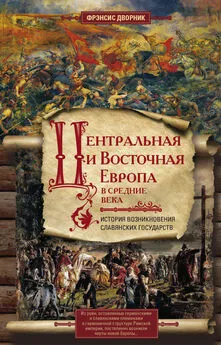Коллектив авторов - Этносы и «нации» в Западной Европе в Средние века и раннее Новое время
- Название:Этносы и «нации» в Западной Европе в Средние века и раннее Новое время
- Автор:
- Жанр:
- Издательство:Литагент «Алетейя»316cf838-677c-11e5-a1d6-0025905a069a
- Год:2015
- Город:Санкт-Петербург
- ISBN:978-5-9905927-4-2
- Рейтинг:
- Избранное:Добавить в избранное
-
Отзывы:
-
Ваша оценка:
Коллектив авторов - Этносы и «нации» в Западной Европе в Средние века и раннее Новое время краткое содержание
Настоящая монография стала итогом работы одноименной общероссийской конференции медиевистов, состоявшейся на историческом факультете МГУ 15–16 февраля 2012 г. На обширном историческом материале исследуются этнические и протонациональные дискурсы, а также обусловленные ими практики в Европе в Средние века и раннее Новое время. Особое место уделено факторам, определявшим специфику этнополитических процессов в композитарных и сложных по этническому составу государствах.
Для историков, политологов, социологов, а также интересующихся этнической историей европейских народов в Средние века и раннее Новое время.
Этносы и «нации» в Западной Европе в Средние века и раннее Новое время - читать онлайн бесплатно ознакомительный отрывок
Интервал:
Закладка:
The results of collective research give the opportunity to note the exclusive significance of medieval experience in ethno-national development, which reveals deep processes of consolidation of societies, clarifying epistemology of the problem and making easier search of way out in difficult situations today.
I. ETHNO-NATIONAL PROCESSES: FACTORS, RESULTS AND COVERING TERMS
I.I. ETHNOS AND PROTONATIONS WITHIN THE CONTEXT OF SOCIOECONOMIC AND POLITICAL EVOLUTION OF MEDIEVAL SOCIETY IN WESTERN EUROPE
The fact of the continuity in the development of medieval polymorphic ethnic societies and more mature «national» forms in Modern time impelled the author to analyze the social conditions, prepared impressive transformations of the given phenomena. The whole complex of social, economic and political transformations in the epoch of modernization of medieval society (noticeable from XIII century) was defined as «consolidation» in order to underline the scale and depth of this process.
Consolidation played the role of the determinant mean to overcome particularism as the characteristic feature of medieval society and signed the general trend towards «national» unity. The author argues that the most significant factors of this process are the following: potential of small production realized by the owner of the instruments of labor; division of social labor which multiplied social relations and enlarged the sphere of their activities (overcoming the limits of patrimonial estate, town, province); overcoming the personal aspect in social relations and in the interconnections between power and society; leveling (within the frames of the state) the social status of peasants and townspeople; growth of their social activity (self-organization of corporations and estates); social dynamics; estates representation as a prehistory of civil society; formation of the institute of citizenship as representation of gradual overcoming of polycentricism.
Noted organizational and often initiative role of supreme power and state institutions in the emergence of ethno-national and – further – «national» states, the author underlines the importance of society as the source of strength or weakness of political factor.
I.II. MEDIEVAL STUDIES AND NATIONAL QUESTION (ON INDEFINITE DEFINITIONS)
The key problem of modern scholarly discussion on the «national question» is that of proportion between the subjective and the objective. With respect to history there is a great variety of opinions: somebody consider ethnicity as an everlasting parameter, or speaks about nations referring even to the X–XI centuries; others call these communities «imaginary» and affirm that the national membership is the matter of free choice.
To resolve this problem in the end we need to decide what is for us the meaning of the concepts of «nation», «ethnic identity», «people» and similar. But still above understanding of the meaning of words is the more important question: in which way ethnic understanding of oneself and of others (identification and self-identification) influenced the human behavior, how much ethnic membership determined the human history?
Historically the people always in one or another way conceived their belonging to land and to their kin, and these bounds to some extent were entangled with the others: faith, citizenship (or political rights), estate or professional membership. With the development of social institutions corresponding identities entered into competition with biological ones, and cultural resources (language, history, education) became increasingly more ponderable from the point of view of ethnical identification.
In medieval Europe the concepts of «nation» and «people» had very large spectrum of meaning, sometimes not ethnic at all. From the point of view of collective identity the faith was more important.
The idea of nation («people») as the chief collective subject of the history was shaped only towards the end of Middle Ages, when the feeling of confessional community somewhat weakened and in general the static predefinition was being washed out by the dynamic model of development. Today the idea of the unity of human culture is «politically correct», but politico-biological views on the substance of nations fully maintain their significance on the level of ideologies and mass consciousness.
I.III. SOME NOTES ON THE BYZANTINE MODEL OF «ETHNIC» IDENTITY
In the Byzantine classification of neighbouring nations, of crucial importance was the basic logic of the Byzantine method of systematization and classification of objects, which was based upon elementary Aristotelian logic. The key concept of the Byzantine taxonomy derives from two related pairs of categories: 'Common / Special’ and 'Genus / Species’. The generic categories represent universal models and ideal types encompassing those individualities which exist in reality and which possess a certain sameness. However, the Byzantine taxonomic grid of similarities and differences, on the basis of which new information was incorporated into already existing models, differed significantly from the contemporary one. Unlike today’s ethnic classifications the Byzantines hardly used linguistic criteria. The Byzantine knowledge categorized nations by their locative features. Byzantine classification of the northeastern and eastern nations was primarily bipartite. The main generic categories designating Altai nomadic peoples were Eo0ai, Otivvoi and ToüpKoi. The most common was the name EKti0ai which could have been applied to the nomadic peoples who originated from the regions north and east of the Danube, the Northern Black Sea and Caspian Sea. A great variety of species (such as MaouayeTai, Eaupoparai, Taupooro0ai, nar^ivaKoi, Kotipavoi, MouyotiAroi, etc.) was subordinate to the generic notions of EKti0ai, Otivvoi and ToüpKoi. The name Перош designates people living east of the Byzantine border in the lands of Ancient Persia. In the eleventh through the fourteenth century, the category nepoai, whilst in principle becoming subordinate to the generic concept of Scythians / Huns / Turks, nonetheless had its own sub-species and was an exception rather than the rule.
I.IV. ETHNOLINGUISTIC CRITERIA USED TO DESCRIBE IRAN IN THE CRONICLE OF JOHN MALALAS
The present work deals with criteria used by John Malalas to describe Iran and investigates interrelation between the toponyms «Persis» and «Persian land» and the ethnonyms «Persians», «Parthians», «Medes», «Scyth-ians».
In the mechanism applied for the ethnic classification, primary importance is attached to genealogical, cultural, and geographic features. The logical basis of the Malala’s classification is represented by such categories as species and genus. The concept «Persian» risults to be a genus definition labeling the inhabitants of the Persian empire and all the subject of the Persian king.
II. FORMS OF ETHNO-NATIONAL IDENTITY: HISTORICAL REFLECTION, LEGAL THOUGHT AND CULTURAL PHENOMENA
II.I. «JUSTICE WAS BORN TOGETHER WITH FRANCE»: INSTITUTING OF PATRIOTISM
The article is devoted to the study of the role of Justice in the process of national identification in the period of the emergence of the Etat-nation in the Late Medieval France. The French national identity was constructed as a «political» type of nation with the King of France as the supreme judge at the center. The Royal function ofthe Justice represented by the Parliament of Paris obtained the central place in the propaganda of French national exclusivity. Paris was compared with Ancient Rome as a common native land for the Royal principal residence, also the Supreme Court of Parliament and the University were situated there. The image of the French impartial Justice is embodied by the Sarrasins (Muslims) who appealed with their suits to the Parliament of Paris. Therefore, the Royal Supreme Court (the Parliament) contributed to French national pride and the establishment of patriotism in Medieval France.
II.II. THE BURGUNDIAN SOCIETY AND SELF-IDENTIFICATION OF THE BURGUNDIANS IN THE XV thCENTURY
The Burgundian state under the Valois dukes was composed of different regions which had been parts of others states before or even had constituted independent duchies, counties etc. The needs for legitimation of the dukes' power over those territories and for centralization of their state caused the attempts to represent the dukes of Burgundy as legal and natural successors of the previous dynasties. The official propaganda insisted on peaceful unification of all regions into the Burgundian state and on legal succession. Along with historical arguments this concept seems to have contributed to the formation of Burgundian identity. The representation of the French kingdom and in particular the French king as natural enemies of the Burgundians was another way to consolidate all subjects around the Burgundian dynasty. The duke of Burgundy was represented as the only protector of «la chose publique» and the subjects were requested to help him by paying taxes in return for their welfare. The disaster at Nancy in 1477 demonstrated that the urban community and small nobility rather than aristocracy («Noblesse debilite» according to Jean Molinet) was the support of the heiress of Charles the Bold. Nonetheless, this Burgundian identity in the XVth century does not appear to be national, but dynastic.
II.III. ETHNIC SELF-IDENTIFICATION AND HISTORICAL MYTH IN POLITICAL IDEOLOGY OF SIXTEENTH CENTURY FRANCE
The study deals with formation and development of concept of national identity in French political thought and historiography. The author analyzes different aspects of that concept such as a problem of ethnogenesis in its basic evolution and an attempt to represent a new model of national identity based on synthesis of Germanic, Celtic, Roman, and Greek elements during the formation of the French. The named theory was constructed by French historians and jurists in order to defend their own concept of the state. Analysis of that theory shows not only the great role of cultural and historical myths in that process but also a certain difference in points of view due to political convictions of theoreticians as well as more general reflection of Troyan myth, particularly in Ronsard’s poetry.
II.IV THE EARLY MODERN BRITISH IDENTITY AND COMPOSITE MONARCHY
Inspired by debates over the strength and depth of the pre-modern roots of nationalism, this study attempts to revaluate the status of British identities in an era whose dominant modes of political argument were based on so called epochalist and essentialist discourses designed with confessional, institutional and juridical terms. Making departure from the widely shared belief that the whole world had been peopled by the outsprings of the biblical «nations», the article probes inconsistencies in national myths of origin and ancient constitutional claims, and considers points of contact which existed in the early modern era between ethnic identities that were viewed traditionally as antithetical, including those of Celts and Saxons.
II.V SELF IDENTITY OF THE ENGLISH NATION IN THE PARLIAMENTARY DEBATES OF THE SECOND HALF OF THE XVI – BEGINNING OF THE XVII CENTURY
The article focuses on the significance of the parliamentary debates for the formation of the national identity of the English people. The author examines the common places of the parliamentary political language related to the images of England and the English nation. The basic elements of official representation of the Englishmen in the ritualized speeches of the leading Elizabethan statesmen were the professing of the true faith, readiness to sacrifice their lives and goods for their struggle against tyranny of the Pope and the King of Spain. Much attention is also paid to the ideas of uniqueness of the English political system and law, as well as the concept of the liberties pertaining to the freeborn Englishmen.
Читать дальшеИнтервал:
Закладка:
